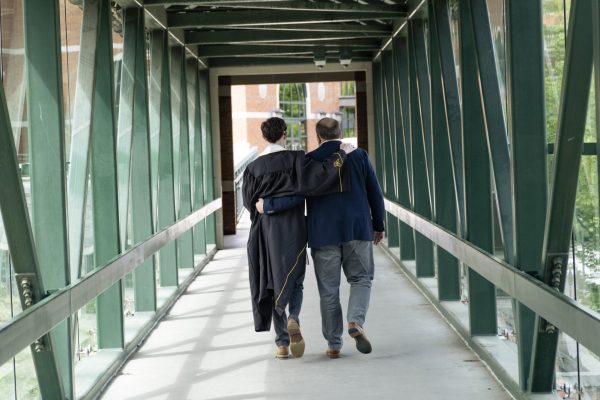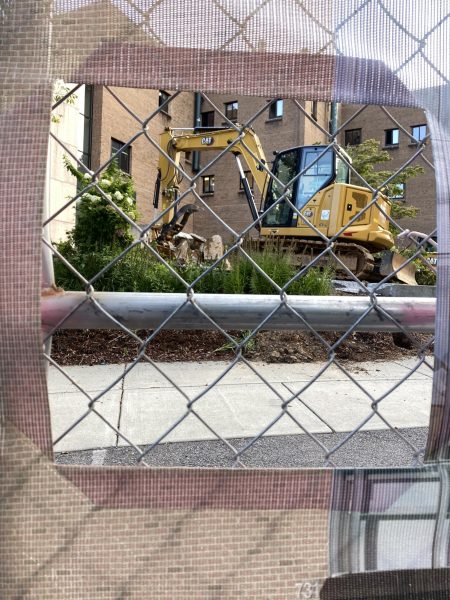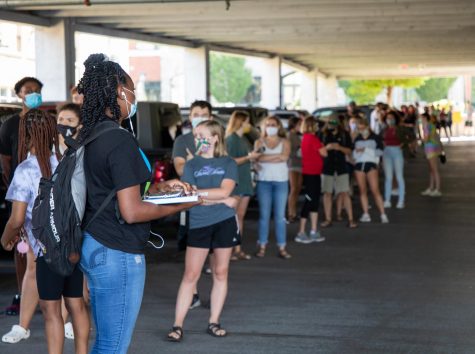New App State research shows Latina women more likely to be deported than male counterparts
December 5, 2019
A recent App State research project found Latina women who form part of a family are three times more likely to be deported than their male counterparts.
Cameron Lippard, chair of the sociology department, completed research about integration and treatment of Latinos in North Carolina, which led him to these findings.
His initial research in 2014 looked at women as being on the “front lines” of discrimination, and it eventually led to his current research.
Anna Biache, a senior sociology major, assisted Lippard in his research and said she wanted to focus on women and their experiences during deportation.
“This research looks at using data collected through immigration customs enforcement,” Lippard said.
The control and border protection agencies release data every year to share the rates of arrests and deportations. Lippard said they used this data to see if there was a difference between women and men who were part of a family unit when they were arrested and whether that resulted in an expedited deportation.
Lippard said they used an existing data source that was compiled through Syracuse University using a program called Trac. The website takes various government reports and distills them down into data points so they can be analyzed.
Lippard said their research dates back to Dwight Eisenhower’s administration and continues through today.
“We’ve lived in an era of deportation since probably Eisenhower. We’ve had extensive rates in the millions every year for deportation,” Lippard said.
Lippard said since Ronald Reagan’s presidency, the agencies have focused on Central American families.
“We tend to focus on Latinos or Hispanic families as the source of issues with immigration, even though we have other problems,” Lippard said.
Biache said the current administration has restricted a lot of its data, so they can’t actually see how many deportations and arrests are currently happening.
“Our numbers drastically dropped the years that Donald Trump has been president, which obviously isn’t accurate because that’s one of the things he’s running on, the immigration control,” Biache said.
Lippard said he has witnessed “fathers and mothers being deported,” and native-born children forced to stay with relatives legally living in the United States or placed in the foster care system.
“Maybe politicians and the public will realize that these are real people, and they’re really going through a situation which is unjust. To be separated from your kids because of documentation is quite horrific,” Lippard said.
It “shouldn’t be a surprise to folks” that people immigrate to the U.S. because it is prosperous and seen as a land of opportunity, Lippard said.
Biache said mothers play an important role in traditional Latino families, and when they are absent or removed for any reason, it increases stress and is traumatic for children.
He said when Latina women are deported, it’s usually because they’re the ones out in public, signing kids up for school or taking them to their medical appointments. It’s not because they’ve done anything “illegal, dangerous or harmful,” Biache said.
“You would hope that our United States administration, Congress, would sit up and listen to those things instead of listening to what seems to historically run immigration policy, which is rhetoric, what people think versus what is actually happening,” Lippard said.



















